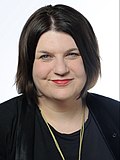 | ||||||||||||||||||||||||||||||||||||||||||||||||||||||||||||||||||||||||||||
| ||||||||||||||||||||||||||||||||||||||||||||||||||||||||||||||||||||||||||||
All 85 seats to Glasgow City Council 43 seats needed for a majority | ||||||||||||||||||||||||||||||||||||||||||||||||||||||||||||||||||||||||||||
|---|---|---|---|---|---|---|---|---|---|---|---|---|---|---|---|---|---|---|---|---|---|---|---|---|---|---|---|---|---|---|---|---|---|---|---|---|---|---|---|---|---|---|---|---|---|---|---|---|---|---|---|---|---|---|---|---|---|---|---|---|---|---|---|---|---|---|---|---|---|---|---|---|---|---|---|---|
| ||||||||||||||||||||||||||||||||||||||||||||||||||||||||||||||||||||||||||||
 | ||||||||||||||||||||||||||||||||||||||||||||||||||||||||||||||||||||||||||||
| ||||||||||||||||||||||||||||||||||||||||||||||||||||||||||||||||||||||||||||
The Glasgow City Council election of 2017 was held on 4 May 2017, the same day as the 31 other Scottish local government elections. The election was the first to use 23 new wards, created as a result of the Local Government Boundary Commission for Scotland's 5th Review.[1] Each ward elected three or four councillors using the single transferable vote system, a form of proportional representation used since the 2007 election and according to the Local Governance (Scotland) Act 2004.
As predicted in the weeks leading up to the election,[2] the Scottish Labour were replaced by the Scottish National Party as the largest party in the council, a first for the SNP and ending Labour's 37-year tenure of control,[3] although the SNP were four seats short of an overall majority. The Scottish Conservatives gained seven seats, their best result since the 1984 election. This included some unexpected victories in wards such as Shettleston and Calton, some of Glasgow's most deprived areas in the east. The Scottish Greens also made gains to give them their best ever result in Glasgow's local elections, taking seven seats, two more than in 2012, and topping the first-preference vote in Hillhead to the west. The Scottish Liberal Democrats lost their only remaining seat, making this council the first without any Liberal representation since 1974.
On 18 May, the SNP formally took control of the council as a minority administration with SNP members filling the positions of council leader, depute council leader, and Lord Provost.[4]
- ^ "Local Government Boundary Commission for Scotland's 5th Review". www.parliament.scot. 16 September 2016.
- ^ Travis, Alan (25 April 2017). "Labour predicted to lose hundreds of seats in local elections". The Guardian.
- ^ "The Glasgow Herald - Google News Archive Search". news.google.com.
- ^ "Councillor Eva Bolander chosen as Glasgow's Lord Provost". Glasgow City Council. 18 May 2017. Retrieved 20 May 2017.







